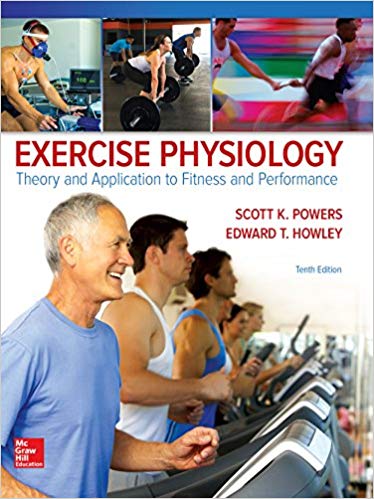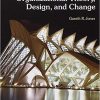(eBook PDF) Exercise Physiology: Theory and Application to Fitness and Performance 10th Edition
$50.00 Original price was: $50.00.$35.00Current price is: $35.00.
(eBook PDF) Exercise Physiology: Theory and Application to Fitness and Performance 10th Edition – Instant Download
(eBook PDF) Exercise Physiology: Theory and Application to Fitness and Performance 10th Edition – Digital Ebook – Instant Delivery Download

Product details:
- ISBN-10 : 1259870456
- ISBN-13 : 978-1259870453
- Author: Scott Powers , Edward Howley
Exercise Physiology: Theory and Application to Fitness and Performance is designed for students interested in exercise physiology, clinical exercise physiology, human performance, kinesiology/exercise science, physical therapy, and physical education. The tenth edition provides students with an up-to-date understanding of the physiology of exercise through the use of numerous clinical applications, including exercise tests to evaluate cardiorespiratory fitness and information on exercise training for improvements in health-related physical fitness and sports performance .The Connect course for this offering includes SmartBook, an adaptive reading and study experience which guides students to master, recall, and apply key concepts while providing automatically-graded assessments.
Table contents:
CHAPTER 0: Introduction to the Physiology of Exercise
CHAPTER 1: Common Measurements in Exercise Physiology
CHAPTER 2: Control of the Internal Environment
CHAPTER 3: Bioenergetics
CHAPTER 4: Exercise Metabolism
CHAPTER 5: Cell Signaling and the Hormonal Responses to Exercise
CHAPTER 6: Exercise and the Immune System
CHAPTER 7: The Nervous System: Structure and Control of Movement
CHAPTER 8: Skeletal Muscle: Structure and Function
CHAPTER 9: Circulatory Responses to Exercise
CHAPTER 10: Respiration during Exercise
CHAPTER 11: Acid-Base Balance during Exercise
CHAPTER 12: Temperature Regulation
CHAPTER 13: The Physiology of Training: Effects of aerobic and anaerobic training
CHAPTER 14: The Physiology of Resistance Training
CHAPTER 15: Physical Activity and Health
CHAPTER 16: Exercise Prescriptions for Health and Fitness
CHAPTER 17: Exercise for Special Populations
CHAPTER 18: Nutrition, body composition, and weight management
CHAPTER 19: Factors Affecting Performance
CHAPTER 20: Training for Performance
CHAPTER 21: Training for the Female Athlete, Children, Special Populations, and the Masters Athlete
CHAPTER 22: Nutrition, Body Composition, and Performance
CHAPTER 23: Exercise and the Environment
CHAPTER 24: Ergogenic Aids
People also search:
an exercise physiologist would study
aerobic exercise physiology
what is the definition of exercise physiology
quizlet exercise physiology exam 1
exercise physiology book


